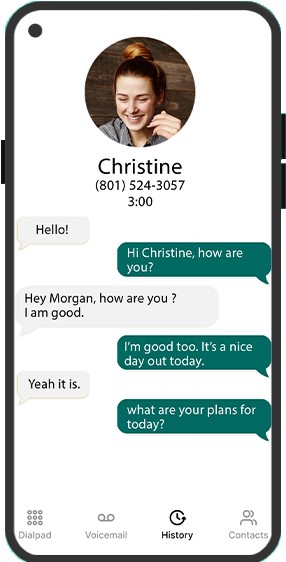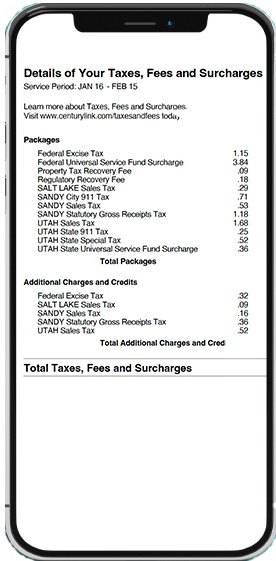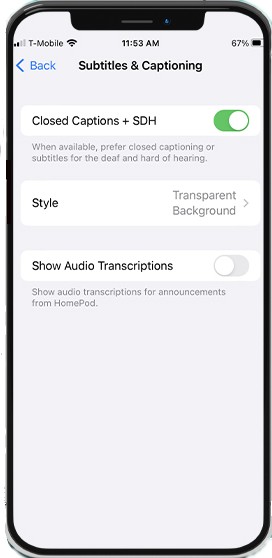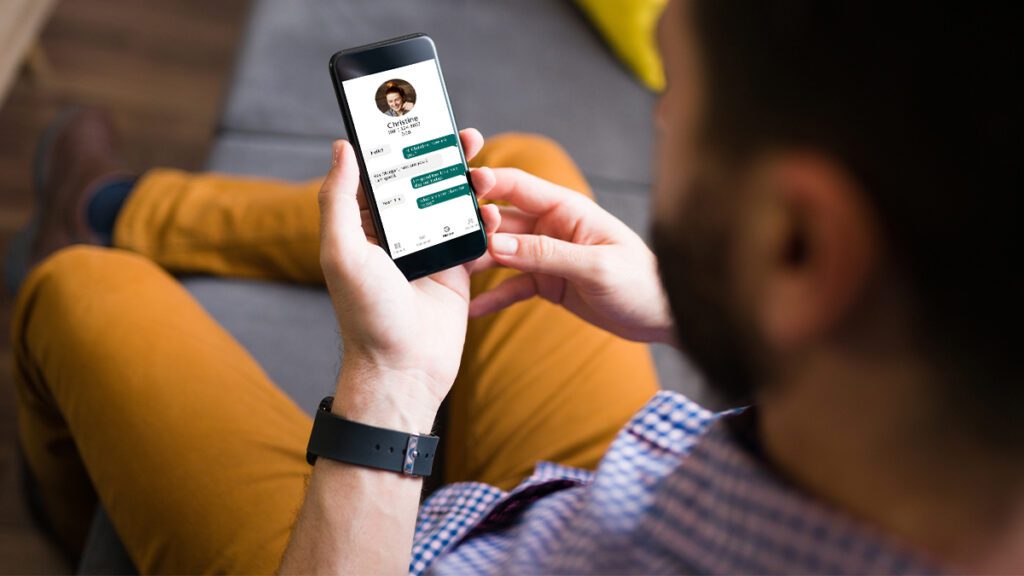Call captioning is much like closed captions or subtitles on your TV or computer. It is also called assistive captioning. You can use it on a landline phone designed to support call captioning, and there are a variety of apps that give you the benefits of call captions on a mobile phone too.
For example, you can get call captioning on your mobile device with the CaptionCall Mobile app.
If you have hearing loss and require captions to use a phone effectively, you can get call captioning at no cost. That applies whether you use a landline phone, a cell phone, or both.
What Is Call Captioning?
Call captioning is an internet-based relay service officially known as Internet Protocol Captioned Telephone Service (IP CTS). If you have hearing loss that that makes captions necessary to use the phone effectively, you can use it at no cost in the U.S through a Federal Communications Commission (FCC)-authorized IP CTS provider.
How Call Captioning Works
Call captioning works by turning the spoken part of a phone conversation into easy-to-read captions that display on your cell phone screen or the screen on a specially designed landline phone. One or both sides of the conversation are captioned for the person using call captioning. The best captioning services and apps work in real time. That keeps conversations flowing at a natural pace.
When using call captioning, you see a caption of what the person on the other side of the line says as they speak. Depending on the app or phone service you use, captions may be black text on a white screen, white text on a black screen, or look more like text messaging. If you use CaptionCall Mobile, each side of the conversation displays in a colored text bubble.

Does Call Captioning Work on Any Cell Phone?
There are a variety apps that provide call captioning on virtually any smartphone.
Some cell phone operating systems let you turn on live captions and automatically see captions for calls, videos, and voice mails. Some enable captions only for video and other media.
Try it for yourself, look for “Live Captions” your phone’s Accessibility settings.
Note that live captions may not be as sensitive or accurate as an app specifically engineered for phone calls.
Is Call Captioning No Cost?
If you have hearing loss that necessitates the use of telephone captions to talk on the phone, you can get call captioning at no cost through an FCC-authorized IP CTS provider. The U.S. federal government manages a fund to cover the cost for FCC-certified services.
Before you can use an FCC-certified service on your home phone or cell phone, you need to create an account. When creating the account, you self-certify that you’re hard-of-hearing and need call captioning to reliably use the phone.
Captioned calls bill to the FCC thanks to a provision of the Americans with Disabilities Act (ADA). As part of the ADA, the U.S. government established a fund to provide call captioning service at no cost to people who need it.
The funds the FCC uses come from surcharges on all telephone bills. You contribute to this important service every time you pay a phone bill.

What Are the Benefits of Call Captioning?
If you have hearing loss, you can more easily have phone conversations with friends and family using call captioning. You don’t miss crucial parts of the conversation or have to ask the person you talk with to repeat themselves or speak up. You’re empowered to use the phone and can communicate with your friends and family, customer service, doctor’s office, and make appointments for yourself.
When you use call captioning, you can also understand conversations more easily. Studies show assistive captioning increases comprehension for people with hearing loss.
“I used to dread phone calls and now I'm so relieved.”
— An CaptionCall Mobile customer review
The best services, like CaptionCall by Sorenson, include a live captioning agent to get the most accurate and near real-time captioning possible. And apps, such as CaptionCall Mobile, use automatic speech recognition (ASR) technology without an agent. Some people prefer the privacy of not having a live agent on the line.
If you don’t have hearing loss, you can still benefit from closed captions, live captions, subtitles, and call captioning—though you aren’t eligible for FCC-funded call captioning services. If you work or play in loud environments where hearing a call is difficult and want to use captions, try your phone’s built-in accessibility options. There are also no cost apps and paid apps you can try.

What Is CaptionCall?
CaptionCall by Sorenson is an FCC-authorized captioned home telephone service. It uses a specific landline phone designed to support call captioning. You get the phone from Sorenson at no cost as part of your CaptionCall service. We even offer to install it and show you how to use it with our popular Red-Carpet Service. When you sign up—and certify you need call captioning to use the phone because of your hearing loss—you can schedule an install and demo of the CaptionCall service and phone.
The CaptionCall service and phone allows you to read what your caller says and listen to your caller’s voice at the same time, so you don’t miss anything.

When you make or receive a call using CaptionCall, a live captioning agent automatically connects to your call. The agent uses voice-recognition technology and manual corrections to turn your phone conversation into captions.
Combining technology and human transcription lets CaptionCall by Sorenson deliver the most accurate captions possible. Sorenson follows strict confidentiality regulations from the FCC.
What Is CaptionCall Mobile?
CaptionCall Mobile is a mobile app that brings call captioning to your cell phone in real-time. You use your cell phone to have natural conversations without any delays or lag. And you can have call captioning anywhere you have mobile data service — you don’t have to depend on Wi-Fi.
“I'm deaf and can finally answer calls after 30 years of never answering.”
CaptionCall Mobile doesn’t use live agents. Instead, it uses the highest quality automatic speech recognition (ASR) technology available. Some people prefer conversations without a live agent—even though CaptionCall agents never record or share your calls.
Just like with CaptionCall, CaptionCall Mobile also gives you access to full call transcripts in your phone’s history. Only you can access those transcripts.


